Select Language
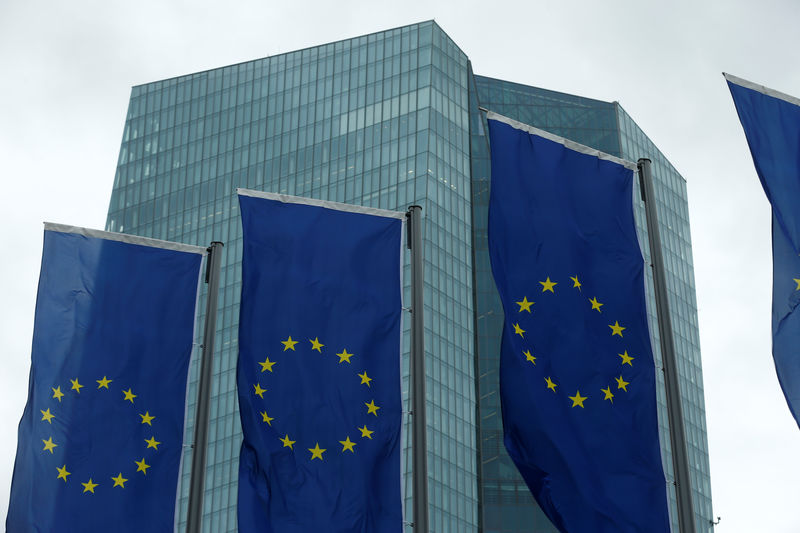
Investing.com -- President-elect Donald Trump has already signaled that trade tariffs are likely to form part of his political agenda, but against concerns that a tit-for-tat U.S.-EU trade spat could threaten a fresh wave of inflation, Citi argues that tariffs may prove deflationary in the Eurozone at a time when the economy is in the doldrums.
"Even if the EU retaliates like-for-like with reciprocal tariffs, the HICP impact is likely negligible," Citi economists said in a recent note.
Imports from the U.S. make up just over 10% of euro area goods imports, a quarter of which is energy but this is unlikely to be taxed, the economists said. With consumption goods accounting for just about 6% of total imported U.S. goods in the Eurozone, the import price-to-HICP passthrough is "usually low," they added.
The potential of a 10% blanket US tariff on EU goods and additional measures against China, the biggest source of EU imports, is likely to further weigh on Eurozone economic growth at a time when the single economy is already facing an uphill task to revive growth, the economists said after downgrading Eurozone GDP growth by 0.3%.
"This shock to the already-struggling European manufacturing sector could weigh on employment and wages in the tradeable sector and beyond," the economists added.
On the export front, meanwhile, tariffs are likely to hurt US and Chinese demand for Eurozone exports, Citi said, though added that they have previously benefited from trade diversion as US reliance on China has collapsed.
A quick look at the impact of tariffs from the prior Trump administration offers clues about the road ahead for the Eurozone. The most significant consequence for Europe from Trump's previous trade disputes has likely been the surge in Chinese import penetration, which has had "likely sizable disinflationary implications," the economists said.
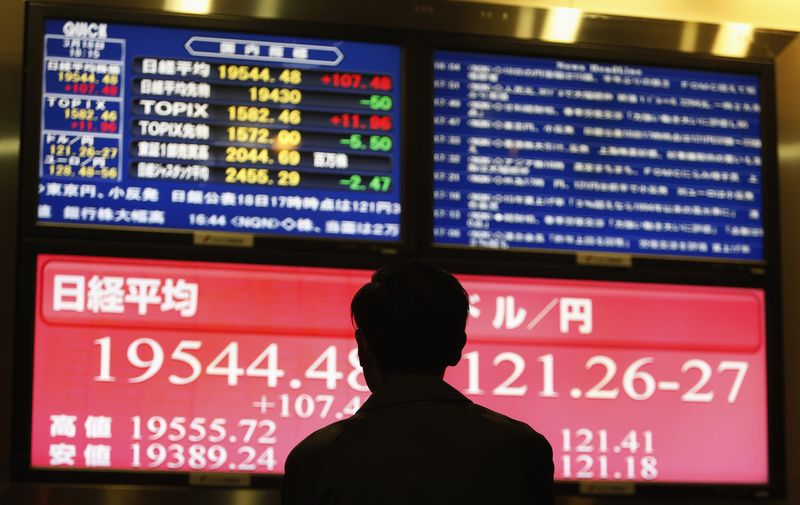
Investing.com-- Most Asian equities were lower on Monday as South Korean shares plunged to their lowest levels in more than a year on deepening political unrest in the country, while investors assessed key economic data releases from China and Japan.
Risk appetite among investors was timid as they were also worried about geopolitical tensions in the Middle East after after rebel forces ousted Syrian President Bashar al-Assad and took control of Damascus. Media reports said al-Assad had landed in Moscow, while Israeli forces had entered Syria.
S.Korean shares slide 2%, lead Asia shares lower
South Korea’s KOSPI fell more than 2% on Monday to its lowest level since early-November 2023. The index had lost more than 1% last week.
South Korea’s political crisis deepened as prosecutors launched a criminal investigation into President Yoon Suk Yeol on Sunday, over his attempt to impose martial law in the country.
Yoon survived an impeachment vote in the opposition-controlled parliament on Saturday, but the head of his own party said that Yoon would be sidelined before eventually resigning.
The political instability in South Korea has kept investors on the edge, as any escalations could have ripple effects all over Asia.
Philippine’s PSEi Composite index fell 0.7%, while Indonesia’s Jakarta Stock Exchange Composite Index was largely unchanged.
Australia’s S&P/ASX 200 inched 0.2% lower while India’s Nifty 50 Futures indicated a muted open on Monday.
Japan GDP, China CPI in focus spur muted reaction from stocks
Japan’s Nikkei 225 was up 0.3%, while the TOPIX climbed 0.4% after Monday’s revised gross domestic product (GDP) data showed that Japanese economy grew slightly more than expected in the third quarter. However, the reading was well below prior quarter’s rise.
cThe soft reading has raised doubts on the Bank of Japan’s ability to raise interest rates further. Markets remain divided on whether the BOJ will hike rates next week.
In China, the Shanghai Composite index was up 0.4%, while the Shanghai Shenzhen CSI 300 index edged 0.2% higher.
Data on Monday showed Chinese consumer inflation contracted more than anticipated in November, as recent stimulus efforts failed to counteract a persistent deflationary trend.
Producer price inflation in November also remained subdued, despite a mild improvement in business activity. The reading reflected more than two years of ongoing declines in PPI inflation, as China's factories faced challenges due to weak domestic demand, and sluggish property sector.
Focus this week will be on China’s annual Central Economic Work Conference (CEWC) for cues on more stimulus measures from the country’s central bank.
Hong Kong's Hang Seng index inched 0.1% higher.
Globally, investors are awaiting U.S. consumer price index inflation data, due on Wednesday, to further gauge the Federal Reserve’s interest rate outlook.
Data on Friday showed stronger-than-expected growth in nonfarm payrolls in November, but was not enough to move bets against a widely expected cut by Fed next week.
US stock futures were muted in Asian trade.
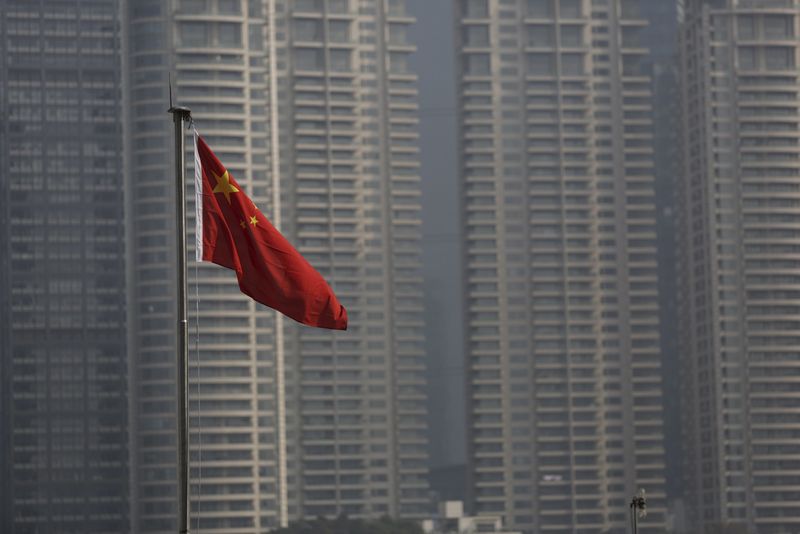
Investing.com-- Chinese consumer inflation shrank more than expected in November as a swathe of recent stimulus measures did little to offset a stubborn deflationary trend, while producer inflation also contracted.
Consumer price index inflation shrank 0.6% month-on-month in November, government data showed on Monday. The reading was softer than expectations for a drop of 0.4% and worsened from the 0.3% contraction seen in the prior month.
CPI grew 0.2% year-on-year, less than expectations of 0.5% and weakening from the 0.3% growth seen in the prior month.
The reading indicated that while some facets of China’s economy had picked up amid aggressive stimulus measures from Beijing, consumer spending remained fragile. This lent more credence to growing investor calls for more targeted, fiscal measures aimed at shoring up private consumption.
But soft producer price index data showed factory gate inflation also remained subdued, despite a mild improvement in business activity through November. PPI inflation shrank 2.5% in November, slightly better than expectations for a drop of 2.8% and improving from the 2.9% seen in October.
But the reading marked over two years of consistent declines in PPI inflation, as China’s factories struggled with sluggish local demand.
Focus is now on two key political meetings in China in December, which are expected to shed more light on the economic outlook and Beijing’s plans for stimulus. '

Investing.com-- U.S. stock index futures moved little on Sunday evening as investors awaited key inflation data this week for more cues on interest rates, while focus was also on heightened geopolitical tensions in Syria.
Futures steadied after Wall Street indexes hit record highs on Friday, where technology stocks continued to push higher as stronger-than-expected nonfarm payrolls data did little to deter bets on a December rate cut.
S&P 500 Futures steadied at 6,098.25 points, while Nasdaq 100 Futures were flat at 21,651.75 points by 18:21 ET (23:21 GMT). Dow Jones Futures were flat at 44,700 points.
Investors were waiting to see what a major regime change in Syria will entail for geopolitics in the Middle East, after rebel forces ousted President Bashar al-Assad and took control of Damascus, ending 13 years of civil war.
Media reports said al-Assad had landed in Moscow, while Israeli forces had entered Syria.
CPI data awaited for more rate cues
Focus this week is squarely on consumer price index inflation data, due on Wednesday, for more cues on the U.S. economy and interest rates.
The reading is expected to show a 2.7% year-on-year increase in the headline figure through November, according to Reuters estimates.
Core CPI inflation is also expected to have remained sticky in November, giving the Federal Reserve less impetus to cut interest rates aggressively.
While the central bank is widely expected to cut interest rates by 25 basis points next week, it is also expected to slow its pace of rate cuts in 2025, amid sticky inflation and a strong labor market.
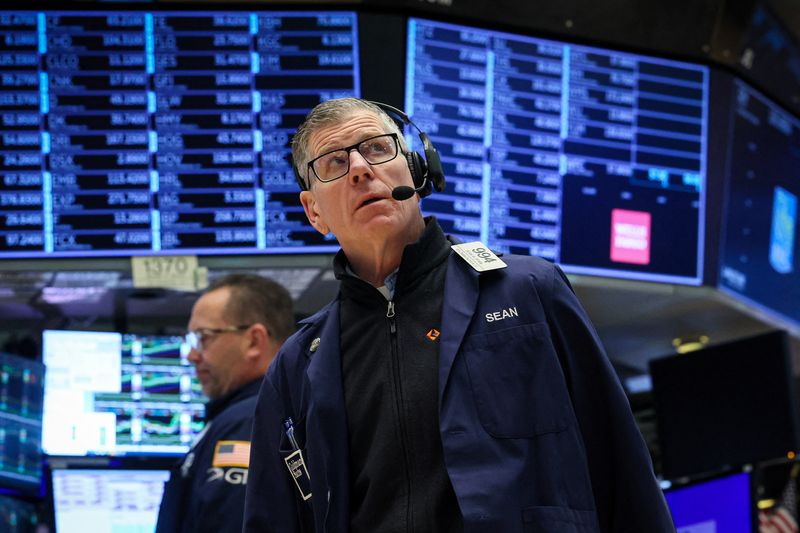
Investing.com -- U.S. inflation data will shape expectations for the path of Federal Reserve interest rates and test the record stock market rally, the European Central Bank meets, and could Bitcoin be poised to go mainstream after breaking through the $100,000 barrier? Here's your look at what's happening in markets for the week ahead.
1. US CPI
The U.S. is to publish November data on consumer price inflation on Wednesday that will give Federal Reserve officials a last look price pressures ahead of their final policy meeting of the year the following week.
The Fed has cut interest rates by 75 basis points since September and markets are currently expecting another 25-bps cut at the December 17-18 meeting.
Bets that the Fed will cut rates again were bolstered by Friday’s stronger than expected jobs report, but any indication that progress in returning inflation to the Fed’s 2% target has stalled would likely see markets revise expectations.
Concerns over a potential revival in inflation have also returned to the fore because of President-elect Donald Trump's plans to raise tariffs on imports. Tariffs are expected to be inflationary.
2. Stock market test
The S&P 500 and Nasdaq Composite rose to record closing highs on Friday as expectations for further Fed rate cuts during a period of robust economic growth continued to underpin investor sentiment.
That scenario historically has produced strong equity gains, and it was supported by Friday's jobs data.
Wednesday’s inflation report will test the strength of U.S. stocks rally into the year-end. If the data comes in hotter than expected the Fed could temper expectations around the future path of rate cuts.
Analysts are already expecting a more gradual pace of rate cuts next year as policymakers assess Trump's fiscal policies after he takes office on January 20.
3. ECB rate cut
The ECB holds it final policy meeting of the year on Thursday with economists overwhelmingly expecting another 25-bps rate cut - which would be the fourth such cut this year.
Eurozone inflation ticked higher in November, but still appears to be heading towards the ECB’s 2% target.
The ECB is also to publish updated growth and inflation forecasts, which are likely to be revised lower for next year.
Since the ECB’s last meeting in October tariff risks for Europe have risen after Trump’s election win; France and Germany are grappling with political turmoil; business activity has slowed sharply, and the euro has weakened.
ECB President Christine Lagarde has said a trade war would be a "net negative for all", not just countries targeted by U.S. tariffs.
4. Bitcoin record
Bitcoin, the world's largest digital currency, surged past the $100,000 milestone for the first time on Thursday after Trump announced crypto veteran Paul Atkins as his pick to head the Securities and Exchange Commission.
Trump also announced that he plans to make former top PayPal executive and crypto evangelist David Sacks "White House A.I. & Crypto Czar," raising doubts over who exactly will drive policy.
While both have urged regulators to adopt a more lenient approach, neither appears to have taken a position about whether crypto tokens should be considered securities, commodities or utilities - a key issue that will shape the industry's regulatory framework.
While numbers like $200,000 are already being mentioned for 2025, the history of Bitcoin is littered with record rallies and equally stunning reversals.
5. Oil prices
Oil prices fell by more than 1% on Friday, cementing weekly losses amid expectations for a supply surplus next year on the back of weak demand despite an OPEC+ decision to delay output hikes and extend production cuts to the end of 2026.
Brent crude lost over 2.5% for the week, while crude oil WTI futures declined by 1.2%.
OPEC+ agreed on Thursday to delay the start of planned output increases by three months to April 2024 and extended its existing production cuts until the end of 2026. But energy traders said the move failed to offset worries about weak demand, particularly in China, the world's second-largest oil consumer.
Oil prices have been rangebound in recent weeks, with geopolitical tensions in the Middle East partially offset by concerns over global economic growth and China's sluggish recovery.

By Forrest Crellin, Nora Buli and Nina Chestney
PARIS/OSLO/LONDON (Reuters) - Europe's struggling industries are bracing for a new gas price shock over the coming winter months, as colder weather depletes stocks, competition with Asia for liquefied natural gas intensifies, and the prospect of reduced Russian supplies looms.
Since the energy crisis of 2022, when gas prices peaked at nearly 350 euros per megawatt hour (MWh), dozens of firms across Europe have closed factories and cut activity and jobs as high gas prices undermined their competitiveness.
Many are maintaining reduced demand and lower manufacturing activity, with negative implications for Europe's sluggish growth.
European Union gas demand is 17% below the five-year average observed during pre-pandemic years.
At the same time, gas prices are at their highest level in over a year and analysts predict they will rise further.
"The concern is that we are laying our guard down because energy prices are lower now than what we saw in 2022," Svein Tore Holsether, CEO of Oslo-listed Yara, a fertiliser company, told Reuters in October.
"It’s important to remind ourselves that we’re still at much higher levels than other key regions like the U.S., the Middle East, and Russia.”
Nervousness about the expiry at the end of the year of a Russian transit deal to supply gas to Europe via Ukraine has helped to drive buying.
Francisco Blanch, the head of commodity and derivatives research at Bank of America, said it could push EU gas prices as high as 70 euros/MWh next year from nearly 50 euros/MWh now.
That compares with average EU gas prices of 17.58 euros/MWh over five years before the pandemic, LSEG data showed.
EU-wide gas inventories are 85% full, some 10 percentage points lower than a year ago, according to Gas Infrastructure Europe data.
That makes the current winter already feel uncomfortable, said Barbara Lambrecht, an analyst at Commerzbank (ETR:CBKG), as cold snaps would cause storage levels to fall faster than during the last two relatively mild winters.
To try to safeguard supplies, the European Commission last week increased its storage filling target, potentially adding to the upward pressure on prices.
SHRINKING INDUSTRIES
Dozens of factories in Europe closed and nearly a million manufacturing jobs were lost over the last four years, Bernstein data showed.
In a report on Europe's competitiveness in September, former ECB chief Mario Draghi said the loss of relatively cheap Russian gas following the 2022 outbreak of war in Ukraine had a "huge cost" to the economy and that fossil fuels would be needed at least for the remainder of the decade.
"Even though energy prices have fallen considerably from their peaks, EU companies still face electricity prices that are 2-3 times those in the United States. Natural gas prices paid are 4-5 times higher," the report said.
Current EU prices are nearly five times higher than U.S. gas, which trades at $3.095/mmBtu, equivalent to 10.02 euros/MWh.
A survey by Germany's chambers of commerce (DIHK) in August found that high energy prices and a lack of reliable energy supplies were hindering industrial production and prompting some German firms to consider relocating abroad.
Yara's CEO also told Reuters the company was "shifting our energy exposure away from Europe".
German industry lobby group, the BDI, has cited high energy prices as among the factors that threaten the competitiveness of Europe's biggest economy.
"The risk of de-industrialisation due to the silent migration and abandonment of many small and medium-sized enterprises in particular is constantly increasing," BDI President Siegfried Russwurm, who also sits on the board at German industrial conglomerate Thyssenkrupp (ETR:TKAG), said in September.
In France, industries expect to operate at 70-80% of capacity this winter due to high energy prices, especially in the chemical sector, Nicolas de Warren, president of French industrial lobby group Uniden, told Reuters.
"With industry still in the dumps, there is no reason to believe gas demand from that sector will stage a comeback this year," said analysts at Rabobank, adding that some increase in demand was possible from the heating sector.
EU's current storage levels, meanwhile, are some 10 billion cubic metres (bcm) lower than last year in absolute terms and the difference will be covered mainly by imports of liquefied natural gas (LNG), Helge Haugane, the head of gas and power trading at Norway's Equinor, EU's biggest gas supplier, said.
That will come at a price as competition intensifies for available supplies.
Although the European Union has avoided imposing sanctions on Russian gas, which some members rely on heavily, it has restricted Russian LNG deliveries.
The European Parliament voted in April to pass rules allowing European governments to ban Russian LNG imports by preventing Russian firms from booking gas infrastructure capacity.
That could increase storage withdrawals and push the EU to compete harder with Asia for U.S. and Middle Eastern LNG.
Europe imported 11.3 bcm, or around 170 cargoes, of LNG in November, mainly from the United States and the Middle East, according to LSEG data.

By Sinead Cruise and Lawrence White
LONDON (Reuters) - President-elect Donald Trump's return to the White House is seen fuelling a dealmaking revival that could bolster investment banking income to $316 billion globally next year, a jump of about 5.7% on 2024, data seen by Reuters shows.
M&A bankers are forecast to rake in about $27.6 billion in fees, according to previously unreported figures from analytics and insight provider Coalition Greenwich, in what could be their second-best year in at least two decades.
Global investment banking income has only topped $300 billion five times in the last 20 years, the data shows, with earnings power in recent years stifled by the pandemic, inflation and global political unease.
Trump's pro-business leanings should help an already thriving U.S. economy, which could in turn encourage greater volumes of cross-border dealmaking and investment from European firms chasing growth, bankers said.
"I know it's that time of year where bankers love to be bullish, but we actually do think that the current climate – political clarity and macro stability - will help drive M&A," Richard King, head of corporate banking, EMEA, at Bank of America said.
"There's a lot of pent up demand that will likely come through in 2025," he said, pointing to private equity as well as acquisitive trade buyers across a range of sectors including healthcare, tech and energy.
Trump's administration could be particularly conducive to M&A because he is seen as likely to wave more deals through that had been blocked under the previous administration over competition or U.S. strategic importance concerns, bankers said.
While rainmakers are getting busier, bankers managing debt sales for companies and governments could also see a jump in activity, bringing in as much as $49 billion, a new record, according to Coalition.
Revenue from the trading of securities -- the biggest contributor to investment bank income -- forecast at $220 billion for 2025 would be the highest since 2022.
Credit and emerging markets macro-related products are likely to see the biggest jump on 2024 figures next year, with a 6% increase each while trading in interest rate-related products could shrink as much as 3.5%.
"We have healthy corporate balance sheets but we have a rate environment that has increased cost of capital...so businesses cannot be lazy," said Taylor Wright, co-head of global banking at Barclays (LON:BARC), predicting private equity firms will be active as both buyers and sellers of businesses.
"Geopolitical risk, in our view, is the wild card. It's hard to plan for that but absent that, we see a lot of factors that suggest that the next 12 to 24 months should be very good for investment banking."
RETURN OF THE FAT CATS?
With revenue on the increase, banker payouts look destined to follow suit, although bonuses will remain below bumper 2021 levels for now.
New York-based pay consultancy Johnson Associates said last month it expected banker salaries to rise in almost every business unit, with the exception of real estate investing.
Headhunters are also reporting new hiring mandates from some banks following Trump's re-election, and a focus on adding staff in the first quarter, traditionally a time when most banks look to reduce headcount.
Hiring has increased across securities trading and from junior through to senior positions, said Natalie Nicolaou, Senior Manager, Distribution & Front Office, at Robert Walters UK, told Reuters.
(Reporing by Sinead Cruise and Lawrence White; Editing by Alexandra Hudson (NYSE:HUD))
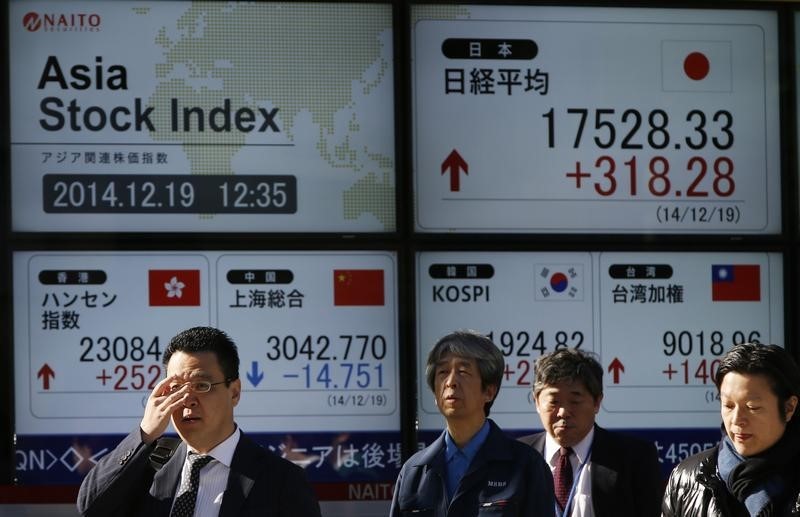
Investing.com-- Most Asian stocks fell on Friday ahead of key U.S. jobs data, mirroring overnight losses on Wall Street, while South Korean shares plunged amid an ongoing political crisis.
All three major U.S. stock indexes ended lower on Thursday, after hitting record high close in the precious session. U.S. Index futures were slightly lower in Asia hours on Friday.
Focus was on key U.S. nonfarm payrolls data, due later in the day, for more clarity on the interest rates outlook. The Federal Reserve is widely expected to cut interest rates in December, but its long-term plans for easing are uncertain.
S.Korean shares pressured by political jitters
South Korea's KOSPI index slumped as much as 1.6% on Friday, after dropping nearly 1% in the previous session. The index saw increased volatility and sharp falls this week after country's President Yoon Suk-Yeol abruptly revoked an imposition of martial law on Wednesday amid public and political backlash.
The leader of South Korea's ruling party Han Dong-hoon said on Friday that the president must be removed from power to protect the nation, citing the attempt to impose martial law.
Other regional markets, including the Philippine's PSEi Composite, and Singapore's FTSE Straits Times Singapore index dropped 0.5% and 0.4%, respectively.
Japan's Nikkei 225 fell 0.9%, and TOPIX declined 0.7%, while Malaysia's FTSE Malaysia KLCI index and Australia's S&P/ASX 200 were down 0.3% and 0.5%, respectively.
In contrast, Chinese stocks surged ahead on stimulus hopes ahead of a key Chinese economic meeting next week. The Shanghai Composite index jumped 0.9%, while the Shanghai Shenzhen CSI 300 index climbed 1.1%. Hong Kong's Hang Seng index surged 1.2%.
RBI rate decision in focus
Nifty 50 Futures indicated that Nifty 50 will open slightly lower. Investors were cautious ahead of the Reserve Bank of India interest rate decision, due later in the day.
Markets are widely expecting the central bank to leave its key repo rate unchanged at 6.50% as country's recent inflation print in October surged past the central bank's tolerance ceiling of 6%.
However, some market participants are still anticipating a 25 basis points cut on India's recent economic growth reading, which slumped to a seven-quarter low in the September quarter. The bets for a cut are also stemming from a depreciation in the Indian rupee.
"India is likely to remain the fastest-growing country in the region in 2025, although that growth will be weaker than in 2024. Inflation should remain well within the central bank’s target, and the local currency should outperform" ING analysts wrote in a recent note.
Asian markets brace for China data deluge next week
Focus next week will be squarely on China's annual Central Economic Work Conference (CEWC) for more cues on stimulus measures and the outlook for Asia's largest economy.
China is also set to release its November CPI inflation data on Tuesday, and its trade data on Wednesday.
India will release its CPI inflation for November next week, while the Reserve Bank of Australia will decide on its interest rates on Tuesday.
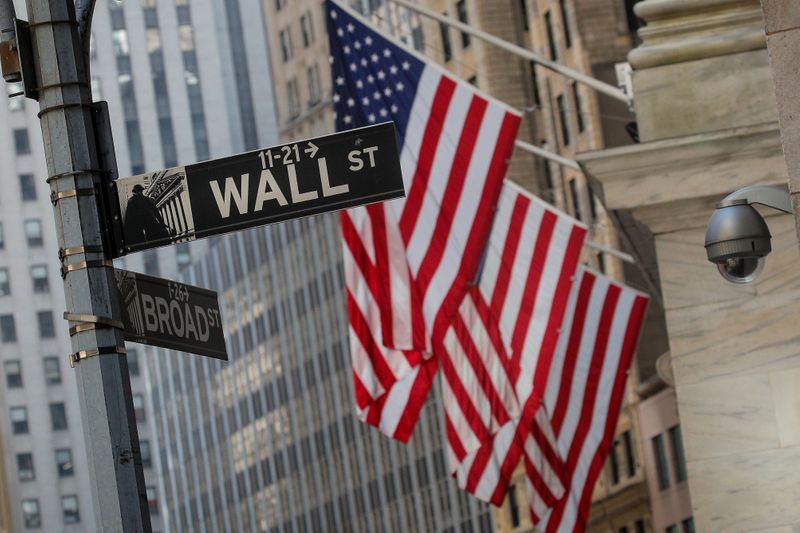
Investing.com-- U.S. stock index futures fell slightly on Thursday evening after Wall Street ended its run of record highs as investors hunkered down before key nonfarm payrolls data for November.
Higher-than-expected jobless claims data also did little to quell speculation that the labor market recovered sharply in November, with any resilience in jobs heralding a slower pace of rate cuts by the Federal Reserve.
S&P 500 Futures fell 0.1% to 6,081.75 points, while Nasdaq 100 Futures fell 0.2% to 21,434.575 points by 18:08 ET (23:08 GMT). Dow Jones Futures fell 0.1% to 44,836.0 points.
Nonfarm payrolls awaited for more rate cues
Focus was now squarely on nonfarm payrolls data for November, due on Friday.
The reading is expected to show the labor market recovered sharply from weather-related disruptions in October, with payrolls growth forecast at 202,000, compared to 12,000 in the prior month.
Strength in the labor market is expected to give the Federal Reserve more headroom to cut interest rates later. A slew of Fed officials, including Chair Jerome Powell, said strength in the economy allowed the bank to be more cautious when considering future easing.
Markets largely maintained their bets on a 25 basis point rate cut by the Fed later in December. But doubts have emerged about future easing, especially as investors also looked to inflationary policies under President-elect Donald Trump.
Wall St cools after record-high run
Wall Street indexes fell on Thursday, facing some profit-taking after clocking a series of record highs this week.
Technology stocks- which were a key driver of Wall Street’s recent rally, while economically sensitive sectors such as energy, financials and industrials lost ground.
Crypto stocks fell tracking Bitcoin after the world’s biggest cryptocurrency tumbled from record highs above the coveted $100,000 level, as it was slapped with heavy profit-taking.
The S&P 500 fell 0.2% to 6,075.11 points, while the NASDAQ Composite fell 0.2% to 19.702.73 points on Thursday. The Dow Jones Industrial Average fell 0.6% to 44,765.71 points, with all three indexes falling from record highs.
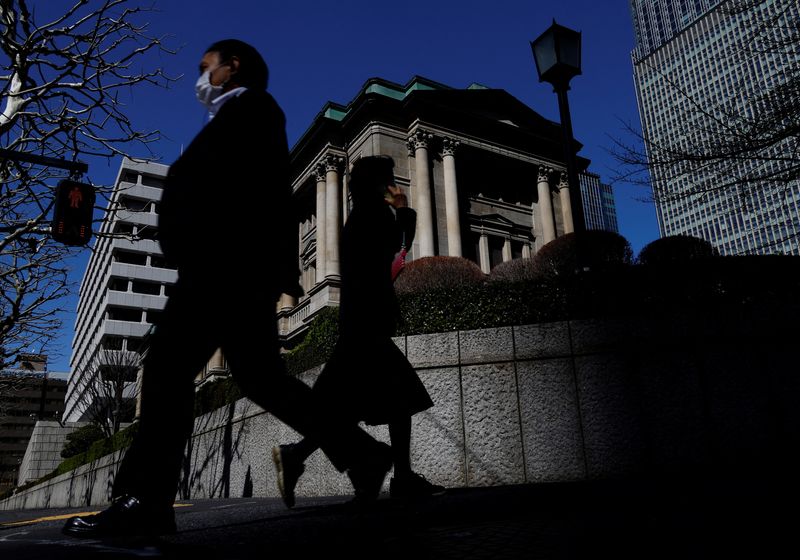
TOKYO (Reuters) - Japan's base salary grew at a 32-year-high pace in October, government data showed on Friday, boosting real wages after two months of decreases and offering statistical support for the prospects of a central bank rate hike this month.
The Bank of Japan must scrutinise various data at its Dec. 18-19 rate review, dovish board member Toyoaki Nakamura said on Thursday, as the market remains split about the timing of Japan's next interest rate hike between December and January.
Base salary, or regular pay, rose 2.7% in October, marking the fastest increase since November 1992, labour ministry data showed, as more companies set higher salaries after major firms agreed to an average 5.1% raise at the spring wage talks.
Overtime pay, a barometer of business strength, rebounded to 1.4% growth from a revised 0.9% decrease in the previous month.
Combined, nominal wages, or a worker's average total cash earnings, grew 2.6% to 293,401 yen ($1,955) in October.
The inflation rate the ministry uses for wage calculation, which excludes owners' equivalent rent, was also at 2.6%, its slowest in nine months.
That led the inflation-adjusted real wages, a key indicator of consumers' purchasing power, to stay unchanged in October from a year before, against a revised 0.4% drop in September and 0.8% decline in August.
Opposition lawmakers had pressed the government and the BOJ to aim for positive real wage growth after the ruling bloc lost its lower house majority at the October general election.
BOJ Governor Kazuo Ueda last week told the Nikkei newspaper in an interview that the timing of the next interest rate hike was "approaching" as the economy was moving in line with the central bank's forecasts.

